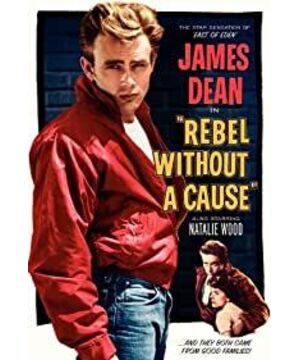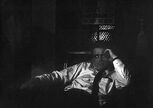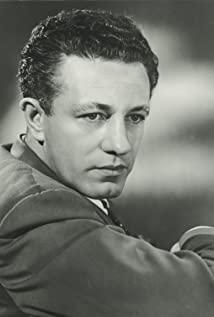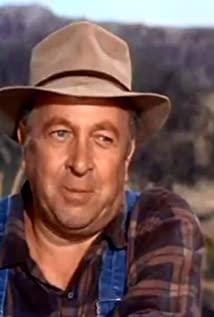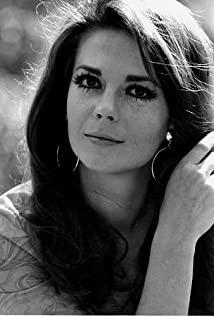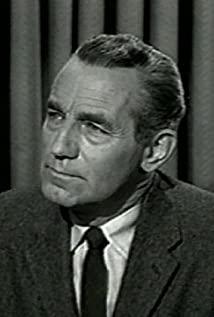I had to write this topic again.
In memory of James Dean.
The old movie from 1955, looking at it now, I feel that the ending is a bit old-fashioned. The hero and heroine have to hug and leave, and the parents who have always been different must forgive each other and leave warmly. No matter how cruel and deep the ending is, there is still a Hollywood happy ending. remnants. The relationship between the hero and heroine also feels like a Hollywood model, with an unusual innocence. I can imagine that when they finally kissed gently, the music reached a climax, and the woman in the hat in the 1950s on the big screen was so moved that she put her handkerchief straight. Wipe the corners of your eyes. Maybe vulgar is better, vulgar is better...
I think of Salinger, he happened to be from that era, and he hated movies the most. I just imagined the movie he hated and thought I could understand why. I remember he said about the lines: they always want to imitate people in life, talk so fast, that a person is interrupted before they finish, in order to speak like real people, but real life No one speaks like that at all.
But what about the films of that era? In the 1950s, the New Wave was still in its infancy, and Italy only had the buds of Neorealism later. And neorealism may have been born in Italy as an opponent of Hollywood-style cinema. After all, this is the age of Hollywood, which has made an indelible contribution to the maturity of film technology. The film's director, Nicholas Ray, is also Godard's hero. Everything is bred, and Hollywood may be the enlightener.
There is no doubt about the classics of the film, it follows the rule of three, allowing the story to take place in one day, creating a sense of drama like tragedy. Perhaps it can be seen that the Hollywood movies at that time followed the solid footsteps of classical dramas, not so much. Commercialize it. More importantly, it is an immortal classic for a generation of rebellious youth. Back then, after watching this film, a young man in a small town decided to go out and venture out, and later he became Bob Dylan.
Today's resonance may not be so strong. Most of today's rebellious young people are lonely and have nowhere to go. Few are like the film's protagonist Jim, who is closely surrounded by parents, grandmothers, and well-meaning police officers. Even at that time, it seemed that there would not be any feeling of being cut off from rebellion or something. People are always close.
The dramatic climax of the film comes with the death of the teenager "Plato". The advantage of following the three uniforms is the tightness and tension of the plot, holding on to people, and being breathless in front of the sudden orgasm. My favorite though is the first shot that is independent of the plot. I see it as a symbolic shot, it doesn't really have a direct relationship to the story of the film, the story starts entirely with the second shot, Jim being brought into the police station. In this first shot, there is a spinning toy figure on the road, Jim comes from the depths of the field, lies on the ground, gently fiddles with the little figure, makes it lie down, and uses a piece of paper to place it properly. Cover the little man. Like a drunk man, with a satisfied smile, he brushed the little man's "quilt", twisted his body, and put on a childish sleeping position next to the little man.
At the end, this shot kept popping up in my mind. I remembered that at the beginning of the film, in the police station, Jim wanted to give his coat to "Plato", "Plato" didn't want it, and at the end Jim gave his coat to "Plato" again, saying: It's warm. "Plato" died Afterwards, Jim sadly pulled back his own jacket that "Plato" was wearing. "Putting on the coat" may symbolize a kind of care, "Plato" treats Jim like a father, and this young Jim, who is still struggling and lost, will take on such a responsibility. Plato was lying on Jim's door in the dark calling "save me", and Jim was also crying "save me" holding his father's feet. He was immature, fragile, eager to grow up but depended on, and because One's own indiscretion has paid a heavy price, but growing up may be learning how to be dependable on others.
I love Jim's act of putting "quilts" on the toy figures, like a crazy, childish move that reminds me uncontrollably of Salinger's Seymour, who would do it. This act is like a pre-consolation for the ending, and the soul of the boy "Plato" can rest in peace.
The film made James Dean, a rebellious icon for half a century, but unfortunately he couldn't see the glory behind him. He was on his way to a race in a sports car a month before the film's release when he collided with an oncoming van. His real goal is actually to be a director.
The Eagles wrote a song for him, "Too fast to live, too young to die." It became his footnote in just twenty-four years.
Who would have thought that it would be another brilliant sentence.
View more about Rebel Without a Cause reviews


